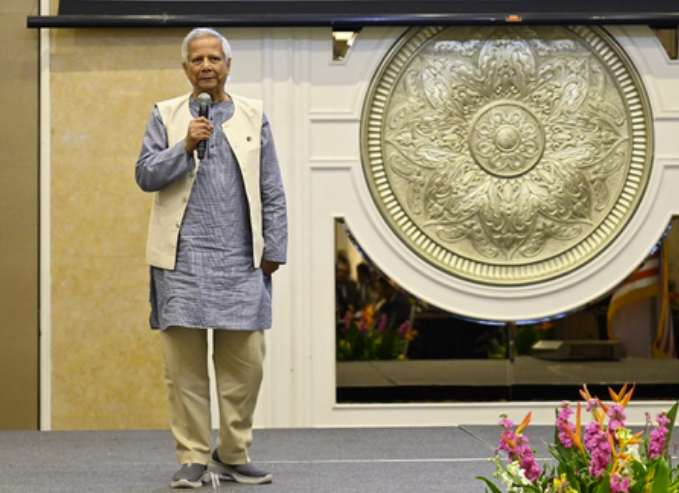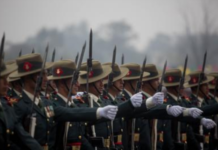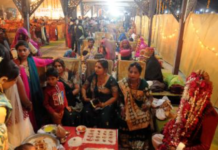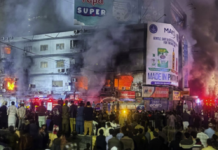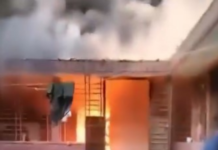Dhaka– One year has passed since Sheikh Hasina was ousted from her long tenure as Bangladesh’s prime minister on August 5, 2024, following a mass uprising. Just days later, Nobel Laureate Muhammad Yunus stepped in as Chief Advisor to the interim government on August 8, pledging sweeping reforms and a new era of freedom and democratic revival. Twelve months on, that promise has collapsed under the weight of anarchy, violence, stalled reforms, and a creeping return to authoritarian rule.
A Human Rights Watch (HRW) report released July 30 outlines both the failures and deliberate excesses of the Yunus-led administration. The government, which vowed to end enforced disappearances and political repression associated with the Hasina era, now stands accused of wielding state power as a tool for political vendetta.
In a striking move, it banned the Awami League — the party that led Bangladesh’s 1971 liberation struggle against Pakistan. This was followed by a wave of arbitrary arrests targeting Awami League (AL) supporters and other political opponents. After violent clashes on July 16 between security forces and pro-AL activists, hundreds were detained and 10 murder cases were filed against more than 8,400 individuals.
From August 6 to September 25, 2024, over 92,000 people were charged — most with murder — including Hasina herself, 390 former ministers, members of Parliament, advisors, city mayors, and others. In one of the most glaring abuses of power, former North Dhaka mayor Mohammad Atiqul Islam has been held since October 2024 on over 60 counts of murder and attempted murder, 36 of which allegedly occurred while he was outside the country.
Under the banner of “Operation Devil Hunt,” security forces have arrested more than 8,600 people since February 2025, ostensibly to dismantle alleged criminal gangs tied to the Hasina government. HRW says many of these detentions — largely targeting AL supporters — appear arbitrary and politically driven.
On the reform front, 11 commissions were created in 2024 to address issues ranging from election integrity to judicial independence and police accountability. While their recommendations — such as fully separating the judiciary from the executive and creating an independent police commission — looked groundbreaking on paper, no meaningful structural changes have materialized. Analysts say institutional obstacles play a role, but the interim government’s aggressive retributive politics suggest that the lack of progress may be by design rather than by default.
The commissions themselves have faced criticism for their lack of diversity and transparency. Dominated by Bengali Muslim men, they exclude significant representation from religious minorities, ethnic groups, and women — raising doubts about the government’s sincerity.
Press freedom has also taken a severe hit. An August 4 report by the New Delhi-based Rights and Risks Analysis Group (RRAG) found a 230% increase in attacks on journalists since Hasina’s ouster, with nearly 900 assaulted between August 2024 and July 2025. Criminal cases against journalists rose 558% in the same period, creating a climate of fear and intimidation in the media.
Religious minorities, especially Hindus, have reported escalating harassment and violence. The Bangladesh Hindu Bouddho Christian Oikyo Parishad documented 258 incidents of communal violence in the first half of 2025, including 20 rapes and 59 attacks on places of worship. The interim government dismisses these as political violence, but minority leaders say the targeting is clearly communal.
The HRW report also highlights rising hostilities toward women’s rights activists, LGBTQ+ individuals, and indigenous communities in the Chittagong Hill Tracts, fueled by both state actors and Islamist hardliners.
What was once hailed as the dawn of a new era has devolved into a year of abuses, broken promises, and deepening disillusionment. While the interim government has pledged to hold elections in February 2026, many question whether they will take place — and, if they do, under what conditions.
For the people of Bangladesh, the past year has been a harsh lesson in the dangers of misplaced trust. The international community, too, must take a harder look at a nation sliding deeper each day into chaos and authoritarianism. (Source: IANS)


